Roundtable: Trans Representation in ‘Sense 8’
I went into Sense8 not knowing much about the story, but I was really excited that it was created by the man who wrote my favorite science fiction show of all time, Babylon 5. Other than that tidbit, I was going in completely blind. While there were many aspects of the show that struck me as incredibly powerful and well written, the character Nomi particularly attracted my attention. I’ve always paid particular attention to LGBTQ+ themes in media and was amazed at her depiction. Nomi is a trans woman played by a trans actress who has a major part to play in an epic science fiction plot that didn’t focus entirely on her gender. Incredible!
But the fact of the matter is that I’m a cis gender queer woman, so any thoughts I have on trans representation is second hand and something I can only relate to by comparing it to my experiences as a bisexual female in a world with primarily heterosexual male protagonists. It’s pretty clear that there are major differences in these two experiences and while I can relate on a surface level, I can’t speak from a first person perspective on the matter. That’s when I began to reach out to my friends and ask for opinions from within the trans community. Is this character really as amazing as I think she is? Or is my comparison to my own experiences with representation in the media painting it in a different light? I simply can’t speak from a trans person’s perspective about this, so with that I’m going to pass the torch to my panelists.
—
Our panelists-
Chase: I have been a student of many fields: Classical Literature, Information Technology, Education, Music, and have been a professional in each. My meandering through those fields has also made me something of an addict for offcenter media, gravitating to any work of Science Fiction or Fantasy I can find, especially those which are character-focused. I rejoice in anything new, be it a new telling of an old story, a new telling of a new story, or just something different altogether, regardless of the vehicle of presentation.
Additionally, I am a 32-year old transgender woman, having come out last year, and do my best to remain aware of trans portrayals in media, and how they affect us. I live in Las Vegas with my wife of six years and generally have a fun time with it.
Dave: I am a long time Science Fiction fan, and want to be writer, with a blog, Dave’s Corner of the Universe and one published credit. on The Lovecraftian Micro Fiction Collection Volume 2. I am the father (technically the Step father but I raised Durzilla since she was one) to a [trangender] woman. Dru lives in Berkeley and was recently attacked by a man and all bystanders did was photograph the attack. with their phones. How transgender people are treated and portrayed is very important to me because my daughter’s safety depends on it.
John: I’m a recent film school graduate, 22, and an enthusiast of the geeky and film art related. I’m just getting started in my career, although I have worked on a few short films, both my own animated works and as a crew member. I am also a nonbinary trans person (my pronouns are they/them). I am currently straddling the line between in and out of the closet, so I am mostly known to the world as a cis woman out of necessity. I take particular joy in film/television critique, both from a filmmaker’s perspective and from a trans feminist one. My goal as an artist is to contribute to the work portraying LGBT+ people within the kind of fiction I like – sci fi and fantasy. In the meantime, I’m an avid consumer of sci fi media, particularly those which I know to have queer characters in them.
—
Q) What other media, besides Sense8, have you consumed that has had notable trans characters? Please describe the characters.
Chase: I tend to gravitate to any trans-focused works, if only to find something relatable, but portrayals as anything other than a gimmick or a joke are few and far between. Most recently, I read Lynn Flewelling’s Tamír Triad, which depicts an MtF transgender main character in a fantasy setting, something almost – if not entirely – unique in my experience. It is gripping, not only for its portrayal of a fantasy settings with many parallels in prejudice that the main character, Tamír encounters due to her status but also due to the significant physical and emotional hardships that she encounters.
John: I’m sorry to say that there aren’t many. While I seek out media with trans characters, too many either make the (usually singular) trans character the butt of a joke or turn their life into a tragedy. Most recently I’ve been watching Netflix’s Orange is the New Black, featuring Laverne Cox as Sophia (I haven’t caught up this season yet but the spoilers have me worried for her, though…). Also worth noting is the childrens’ show Steven Universe, a current favorite of mine. While there are no explicitly trans characters, the Gems (an alien species resembling humans with special powers) have been confirmed by the creator as having no gender (although they all use she/her pronouns and most have typically feminine body types). For me, it’s difficult to find satisfactory representation (especially as a nonbinary person, we’re pretty much invisible), particularly within the genres I prefer.
Dave: One of the first was in a neo-noir novel called Stipped, by Brian Freeman. It is the second story about his main character John Stride. Stride’s new partner is a transgender woman. A good character who has some great detective abilities, but has the entire police force against her.
Q) Was Nomi different from other trans characters you’ve encountered? If so, how?
John: I was delighted by Nomi in general, along with most of the other sensates to be honest. Really from the first moment I was invested in her, when she was shown to have a healthy, happy relationship and sex life (really not something you see a lot with trans people on TV). While it was uncomfortable for me to watch some of the hospital scenes, I have to say I’m glad that those were towards the beginning of the show – they got it out of the way so she could beat that and come into her own as a sensate as the show progressed. For me there was also a sort of element of escapism in the way she’s treated by the other sensates and Amanita – they don’t misgender her, they don’t really even comment on her being trans, they just recognize her as one of their “we” which allows them to pool their talents together for the climax of the finale. She’s also a hacker, which I feel is far, far away from a stereotypical profession.
Dave: She is more organic to the story. It almost like they are telling the story of eight real people. She dosen’t seem shoehorned into the story.. (Maybe that is more how she was different from how I was afraid she might be portrayed when I first heard about the show.)
Chase: Originally, I was ambivalent about Nomi’s portrayal, though she resonated with me quite significantly despite that. I felt that early on in the series she was being damseled, if you will. That is, to say, that she was in a near-constant state of being rescued, first in arguments with people at Pride, and then again in the hospital, on multiple levels. Despite that, it was not carried as any sort of stereotype, I think, but rather a necessary path on the development of her character, and thus much less problematic once context was provided.
Q) The intentional misgendering by Nomi’s family could have been triggering for some. How did you feel those scenes played out? Did it feel accurate to what you’ve experienced?
 Chase: I am fortunate that intentional misgendering of me has occurred at a minimum, and never by family. That being said, in what I have observed of my sisters, brothers, and others in arms, the situation with Nomi’s family was absolutely parallel to reality, including in realms of forced hospitalization, which I could not help but to liken to the various “cure the gay/trans” camps. The scenes were, for me, incredibly hard to watch, as were all of the scenes in the hospital. I had to stop watching mid-episode to do something cheerful.
Chase: I am fortunate that intentional misgendering of me has occurred at a minimum, and never by family. That being said, in what I have observed of my sisters, brothers, and others in arms, the situation with Nomi’s family was absolutely parallel to reality, including in realms of forced hospitalization, which I could not help but to liken to the various “cure the gay/trans” camps. The scenes were, for me, incredibly hard to watch, as were all of the scenes in the hospital. I had to stop watching mid-episode to do something cheerful.
John: Misgendering is something that happens to me on a daily basis, but that’s usually out of ignorance, not malice (it still sucks, but it’s a different beast). The intentional misgendering wasn’t triggering to me, but it certainly wasn’t fun to watch. The difficult parts to watch were the hospital scenes. It reminded me strongly of the many ways the medical field has failed trans people, has considered us wrong or broken. It also brought to mind fears that I have, both related to my trans identity as well as a more basic fear of losing my ability to choose what happens to me and of losing brain function. I actually had to stop watching the show for a few days, these scenes upset me so much.
Q) Were there any other moments of Nomi’s story that personally resonated with you?
Chase: In general, I found a lot to love with Nomi. Across the board, she spoke to me as a great role model for trans women (or at least techie trans women), the more she was developed as a character. I felt that it was relatively unique that Nomi was portrayed both as a sexual and beautiful woman, something mostly lacking in transgender portrayals in the media. Jamie Clayton deserves a lot of credit for that portrayal, too.
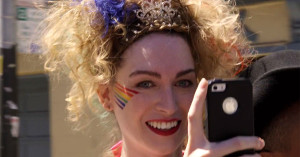 John: I loved her pre-Pride speech, her assertion that she is also a “we.” It felt like a shout-out to all the LGBT+ viewers, a reminder that we aren’t alone. It also tied into the theme of the show amazingly well. Her escape from the hospital was also kickass. The sensates collaborations in tight spots are my favorite moments of the show in general.
John: I loved her pre-Pride speech, her assertion that she is also a “we.” It felt like a shout-out to all the LGBT+ viewers, a reminder that we aren’t alone. It also tied into the theme of the show amazingly well. Her escape from the hospital was also kickass. The sensates collaborations in tight spots are my favorite moments of the show in general.
Dave: I think that her lover is African American is important. In ways it ties her story to the overall equal rights struggle, it also shows where civil rights have gone in the past 50 years.
Q) Were you aware that one of the writers of Sense8, Lana Wachowski, is a trans woman? Does that affect your feelings about Nomi?
Chase: I absolutely held this story to a higher standard of portrayal due to Lana Wachowski’s involvement in it, and I was not disappointed. To me this, much more than Jupiter Ascending, was the next logical step from the pan-gender and -sexual themes exhibited in Cloud Atlas, and as such it really is something I am grateful to have seen.
Dave: To me the character seems is very autobiographical. But that isn’t a bad thing. Lots of beloved characters from Luke Skywalker to Sherlock Holmes are author avatars. The other 7 are interesting characters, but they didn’t seem as personal to the story as Nomi.
John: I also held her representation to a higher standard. I’m a fan of the Wachowskis’ work and I did trust Lana to write a well rounded character, but when trans people are so rarely given good representation I’m automatically nervous. I wasn’t disappointed, though.
Q) Do you feel that Lana Wachowski’s controversial past remarks regarding intersectionality could taint any positive influence the character Nomi has had towards Trans representation?
Chase: I believe very firmly in separating the artist from the art. Except in specifically autobiographical works, I find it to be a necessary component of enjoying creative media. Regardless of whether I agree or disagree with Lana Wachowski’s words in the speech, I am able to enjoy her art as something irrespective of her errors in other realms. That being said, either via error or intent, that speech was not well-made.
John: I was incredibly disappointed and angry to hear about what she said. I believe strongly in intersectionality, and as an artist myself, I can’t separate an artist’s public personality from the work they create. Personal beliefs almost always have an influence on art (it’s likely we wouldn’t have gotten such a well written trans character had transgender issues not been close to Lana Wachowski’s heart). After hearing about her remarks, I became very worried about how these views might transfer to the show. There has already been commentary about the racist undertones of an element of Will’s (the cop from Chicago) story. However, Lana Wachowski is not solely responsible for the writing or directing of the show, and I didn’t see any of these problematic views coming through in Nomi at all. I’ve seen some suggestions that the show should be boycotted because of these remarks, but I don’t agree with that. Yes, there are problems, and nothing is perfect, but I feel that I can’t afford to ignore representation like this. I will settle for being critical but still enjoying what I watch, because the show really is a treat.
Q) Besides Nomi, what else did you love about Sense 8? Anything you didn’t enjoy?
Dave: The cinematography is great I haven’t been that excite about TV cinematography in a long time. No only Nomi but I like that the characters are all genders and colors. The premises rocks. The first episode was basically an elongated origin story that ran a bit long, but I am not sure how that could have been avoided.
Chase: I actually strongly enjoyed the portrayal of all eight core characters. The writers did a very good job at creating very realistically socially awkward situations that one could imagine would arise from such circumstances, and played them for soft humor, rather than punching down as others might have done. Each character had something I might sympathize with, but all had very strong themes in their stories of examination of their relationships with their families and what they would do to honor, or sever those relationships. It really drove home the thinking that this wasn’t eight characters. This was eight people who were one character, and in each of the eight’s telling we were seeing a different facet of them. I also very much enjoyed the portrayal of certain cultural quirks (ie: Van Damn, as opposed to Van Damme) which made the work in general feel very authentic to me. And, oh yes, let’s not forget the great big psychic orgy. Not usually my thing, but wow.
John: This show was so wonderful to watch. There were a few moments that had me shocked, even one that kept me from continuing to watch until I managed to collect myself, but they were worth it. The editing here is spectacular. There’s a choreography to the scenes, particularly those in which characters replace each other in their times of need. At times early on I found it hard to keep track of all of the characters, but they are each so distinct and strongly written that it didn’t take long to fall in love with them all (well…I’m still undecided about Wolfgang but there’s still some great writing going on so that’s more of a personal preference thing). I also found that there are some wonderful characters outside of the core 8. Overall it’s engaging – an easy binge watch, to be honest. I feel a little frustrated by the lack of answers for some of the plot points (and I want to know what happens to characters outside of the core 8 after the climax). I haven’t heard whether a second season is on the table, but it had better be. I need answers! And more of these 8 fabulous dorks!
—
So readers, what are your thoughts on Nomi? Did she live up to your expectations? Did she resonate with you? The views expressed in this article are that of two trans identified people, and the father of a trans woman, so there are probably a large variety of views out there and we want to hear them. Leave your thoughts in the comments below!
Author: Angel Wilson
Angel is the admin of The Geekiary and a geek culture commentator. They earned a BA in Film & Digital Media from UC Santa Cruz. They have contributed to various podcasts and webcasts including An Englishman in San Diego, Free to Be Radio, and Genre TV for All. They identify as queer.
Help support independent journalism. Subscribe to our Patreon.
Copyright © The Geekiary
Do not copy our content in whole to other websites. If you are reading this anywhere besides TheGeekiary.com, it has been stolen.Read our

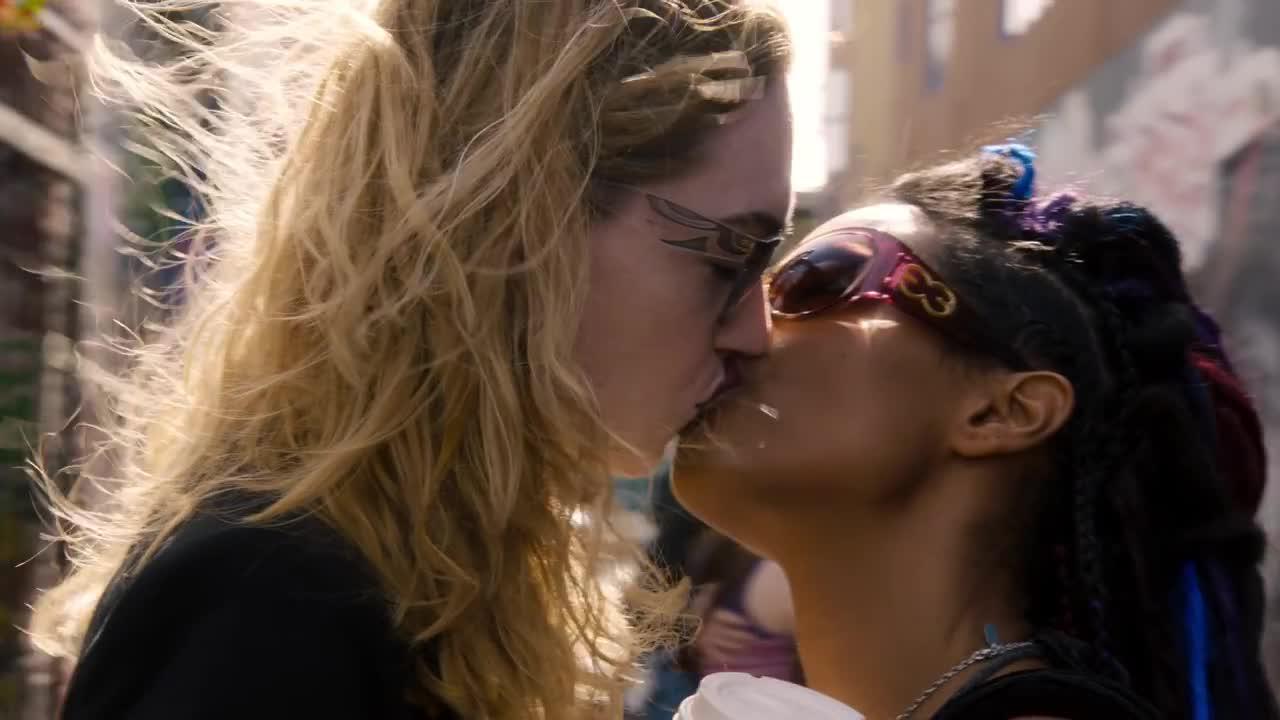
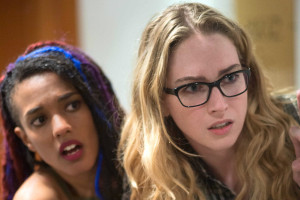
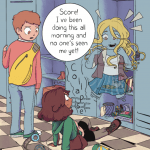
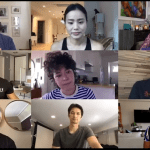
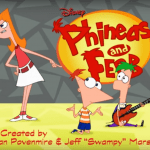
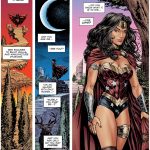

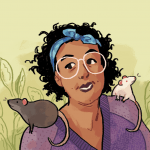
1 thought on “Roundtable: Trans Representation in ‘Sense 8’”
Comments are closed.